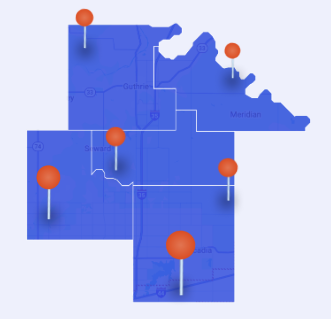CDFI Certification Updates: Primary Mission
Revised CDFI application requirements and how your credit union can prepare for them.


In December of 2023, following a public comment period that lasted more than six years, the Community Development Financial Institution (CDFI) Fund released its long-awaited revised application for CDFI Certification. Included among the amended statutes is an approach towards determining and evaluating an institution’s primary mission to confirm that the institution is truly committed to community development.
Background
All CDFIs must have a primary mission of promoting community development — this fundamental requirement has not been altered. However, what has changed is the methodology by which the CFDI Fund interprets and evaluates this mission.
As explained in the updated application, “…the CDFI Fund will consider whether the activities of the Applicant are, per regulation, purposefully directed toward improving the social and/or economic conditions of underserved people and/or residents of economically distressed communities.” And further, “…[a]s part of its assessment, the CDFI Fund will consider whether the entity has a community development mission and strategy and whether the entity meets the CDFI Fund’s standards for responsible financing practices.”
Community Development Mission
There are two main criteria for successfully demonstrating that a primary mission is dedicated to community development:
1) The mission statement itself must be documented and in place for at least six full months directly prior to submission of an application. We recommend you review your primary mission statement no later than June 20th to meet the December 20th deadline; and
2) Documentation must be submitted proving the mission has been approved by the applicant’s board or owner.
Community Development Strategy
The next step is to prove an institution’s mission will be implemented effectively and that ultimately its financial products and/or services will indeed reach and impact the communities for which they are intended. As such, an institution must submit either:
1) A board-approved strategic plan with evidence of said community development strategy; or
2) A board-approved narrative detailing the community development outcomes it intends to achieve and how that strategy will lead tothose outcomes.
Regardless of approach, the submission must outline the specific financial needs and challenges facing a CDFI’s target market, goals and objectives the institution seeks to pursue, and how its products and services will help improve economic conditions within the target market.
Responsible Financing Practices
Lastly, the revised application poses a series of questions to ensure all financial products and services — not, for instance, solely those directed at the target market — are consistent with promoting community development. Towards this end, the CDFI Fund details specific ineligible activities while also considering broader aspects such as transparency, safety, affordability, fair collections, and compliance with federal, State, and local regulations that the CDFI Fund considers to be incompatible with a community development purpose. For example, an applicant might have a hard time becoming a CDFI if they charge triple-digit interest rates on consumer loans.
Takeaway
For credit unions seeking to obtain or maintain CDFI Certification, the new requirements may present some logistical challenges. Some credit unions will likely need to change their mission statements to be more persuasive in their community development purpose. Elsewhere, certain credit unions may need to update their lending practices to align with the CDFI Fund’s requirements.
All that being said, CUCollaborate offers a Readiness Assessment consulting engagement, which helps credit unions understand the degree to which they meet the Certification requirements and includes recommendations on potential changes that may be required for a strong Certification application. Following the Readiness Assessment, if a credit union is interested in pursuing Certification, CUCollaborate can support every aspect of that effort. Schedule time to meet with our Manager, CDFI Advisory Consultant, Jeff Bailey at jbailey@cucollaborate.com or schedule a meeting here. We will review your CDFI journey to ensure your credit union is on the right path.
CDFI Fund








.jpg)






.png)




.png)



.png)











.jpg)
.jpg)








.jpg)


